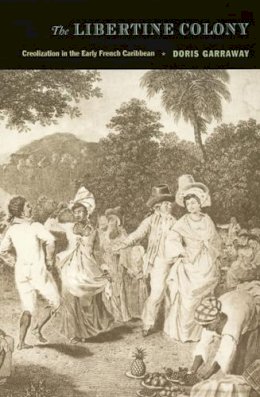
The Libertine Colony. Creolization in the Early French Caribbean.
Doris L. Garraway
Among the texts Garraway analyzes are missionary histories by Jean-Baptiste Du Tertre, Raymond Breton, and Jean-Baptiste Labat; narratives of adventure and transgression written by pirates and others outside the official civil and religious power structures; travel accounts; treatises on slavery and colonial administration in Saint-Domingue; the first colonial novel written in French; and the earliest linguistic description of the native Carib language. Garraway also analyzes legislation—including the Code noir—that codified slavery and other racialized power relations. The Libertine Colony is both a rich cultural history of creolization as revealed in Francophone colonial literature and an important contribution to theoretical arguments about how literary critics and historians should approach colonial discourse and cultural representations of slave societies.
Product Details
About Doris L. Garraway
Reviews for The Libertine Colony. Creolization in the Early French Caribbean.
Alix Pierre
Caribbean Studies
“Garraway’s analysis will challenge, enlighten, and sometimes stupefy historians. . . . Her book deserves to be read and debated because of her admirable immersion in the primary printed and secondary historical literature, and because this brief review cannot plumb the depth and complexities of her work.”
Phillip P. Boucher
American Historical Review
“This book will prove useful to scholars interested in literature, history, the Caribbean, and colonialism. Garraway’s attention to terms and tropes, i.e., the distinction between flibustiers and buccaneers, the etymology of ‘cannibal,’ and the development of the figure of the ‘zombie,’ adds to its appeal for use in some undergraduate courses. Also valuable are her examination of images from several print documents and her care to situate authors and provide detailed publishing histories.”
Aletha D. Stahl
French Review
